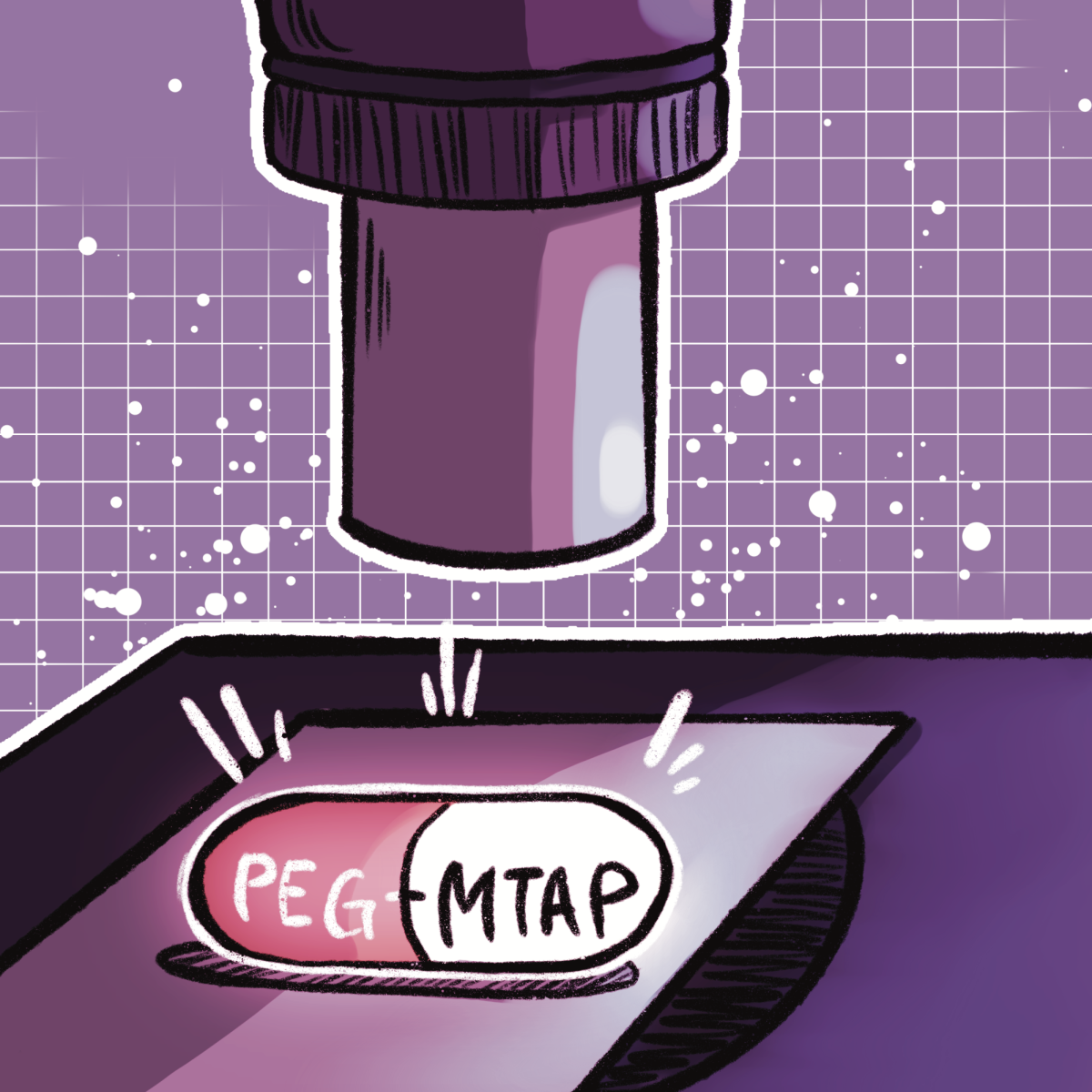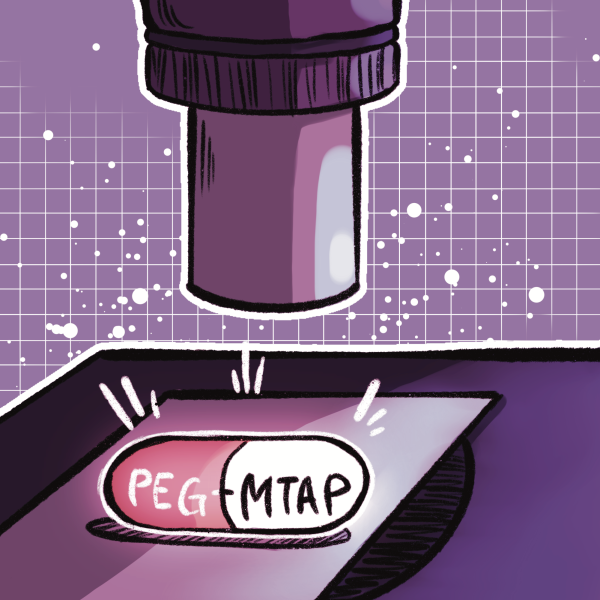A research team led by UT scientists recently developed a new drug candidate designed to shrink tumors in cancer growth.
In a study, published in Cancer Cell on Sept. 28, researchers looked at a section of DNA deleted in 15% of cancers. Included in the stretch is an important enzyme for tumor growth responses called MTAP.
“We said, ‘Well, let’s actually engineer and optimize the very enzyme that was lost in that cancer,’” said the study’s lead author Everett Stone. “(Our drug candidate) wipes out this immunotoxic molecule, and we observed in our models that it really turns the immune system back on.”
Without MTAP, accumulating levels of methylthioadenosine (MTA) hinder T-cell function and lower the immune system’s ability to fight off disease, according to the study.
Donjeta Gjuka, the study’s first co-author, worked on the drug’s development while at the University. Both Stone and Gjuka patented the enzyme they engineered to create the drug candidate.
“(The development) was an amazing experience,” Gjuka said. “There were, of course, implications of MTA being immunosuppressant from previous papers, but nobody had come up with a way to reverse it or find out different treatments. Dr. Stone and I thought about a project to further look into this.”
The drug candidate the research team developed, called PEG-MTAP, has promising implications for immunotherapy treatments, Stone said. Immunotherapy is a type of treatment that helps boost immune system responses to identify and destroy cancer cells.
“We can turn those patients that are poor responders to good responders and incredibly it’d be a huge impact,” Stone said.
Now, the research team is seeking funding to help progress their drug to the next step in development.
“The real big hurdle is getting enough funding,” Stone said. “That usually takes money and the universities typically don’t have enough funds to get the molecule through the rest of the safety testing, make enough material and then initiate a clinical trial.”
Since the researchers engineered PEG-MTAP using the human version of the MTAP enzyme, Gjuka said she is hopeful about the results of the drug in clinical testing. In mouse models, the researchers observed no negative effects.
“Since it’s a human enzyme, it’s ubiquitously expressed in all our cells,” Gjuka said. “It’s not like we’re introducing something very different. There’s no immune response to it. There’s no negative effects.”
Ultimately, Gjuka said the drug could potentially benefit cancer patients who experience aggressive tumor growth.
“Fifteen percent of the patient population with cancer could benefit from this,” Gjuka said. “They can use immune checkpoint inhibitors or anything like that. Combining (the drug) with those it will be really beneficial for the cancer patients, and we really hope so.”
















